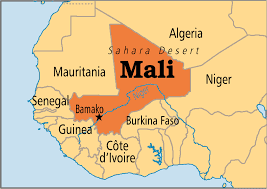APA-Bamako (Mali) Mali has withdrawn from the Agreement for Peace and Reconciliation, resulting from the Algiers trial signed in 2015 with the northern rebel movements.
As announced a few days ago, the installation ceremony of the Steering Committee of the inter-Malian dialogue for peace and national reconciliation, took place this Monday, February 5, 2024. The new structure, chaired by former minister Ousmane Issoufi Maiga, was recently set up, but its details are still unclear.
The setting up of this structure, which will have a lifespan of one month, was announced by the President of the Transition in his New Year’s address. It also comes a few days after the transitional authorities announced the “end, with immediate effect” of the Peace Agreement signed in 2015 with the rebels.
Made up of 140 recently-appointed members representing various community, political, religious and academic players, this steering committee is responsible for “preparing and organizing” the direct inter-Malian dialogue for peace and national reconciliation. A dialogue, according to the transitional authorities, designed to promote national ownership of the peace process and resolve the conflict that has shaken the country for almost a decade.
However, the absence of certain players raises questions about its true effectiveness. Some felt that the specific objectives of the dialogue in Mali were not sufficiently clear. There are no members of the armed groups involved in the Algiers peace agreement, which the authorities have just announced has come to an end.
Moreover, given the composition of its members, it would appear that the issue of terrorism is not a priority for this committee. And yet, Mali has a number of players who have already had dealings with terrorists to satisfy specific needs, such as the release of hostages, the lifting of blockades imposed around certain localities, and so on.
In many other meetings organized in the past, such as the 2017 Conference on National Understanding, the 2019 Inclusive National Dialogue, and the 2021 National Refoundation Conferences, several participants had recommended opening a dialogue with Malian terrorists to put an end to the violence. This was one of the sticking points between the Malian authorities at the time and their Western partners, who were very opposed to such an initiative.
Another point to bear in mind is that many observers feel that there is no purely local touch, insofar as notables and opinion leaders from the interior of the country have not been appointed to this committee. Many of those appointed already hold positions in the Malian administration and certain transitional institutions.
MD/ac/fss/abj/APA


